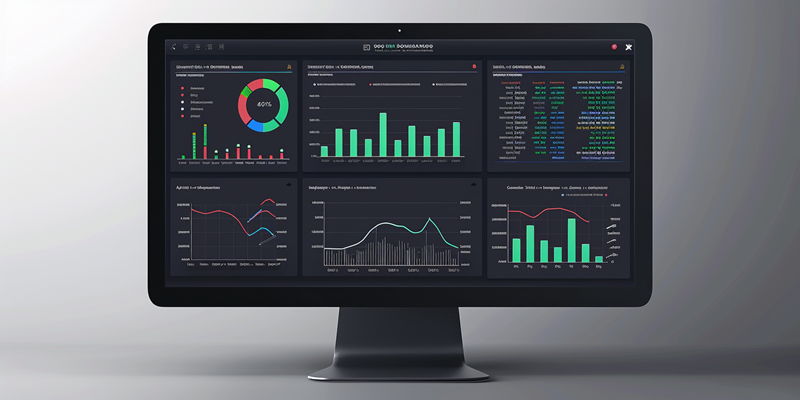In the data-driven corridors of modern business, dashboards stand as the vanguards of decision-making, cutting through the clutter of raw data to illuminate insights with clarity and precision. Their transformative power lies in their ability to distill complex information into actionable intelligence—guiding the strategic vision of an organization with the surety of data-driven insights.
The Principle of Simplicity in Data Visualization
Simplicity reigns supreme in the world of data visualization, stripping away the superfluous to focus on the essential. Through intuitive design and a clear visual language, dashboard tools make data accessible and immediately actionable, serving as a catalyst for informed decision-making that can navigate the complexities of modern business landscapes.
Democratization of Data Analysis through Dashboard Tools
Empowering all levels of an organization with the ability to interpret and act upon data, dashboard tools play a critical role in fostering a culture of inclusivity around data analysis. By providing a common platform for understanding key performance indicators, these tools help weave informed decision-making into the organizational fabric.
Specialized Dashboards for Varied Business Intelligence Needs
Business intelligence is not monolithic, and neither are the dashboards that support it. From real-time operational dashboards to analytical dashboards rich with historical data and strategic dashboards that provide a high-level view of business objectives, these tools are designed to cater to the diverse needs of decision-makers.
Custom Dashboards for Tailored Business Insights
In the age of personalized data intelligence, custom dashboards stand out for their ability to align closely with the unique priorities and objectives of different business units. This customization ensures that the insights provided are not only relevant but also deeply integrated with the strategic goals of each team.
Real-Time Analytics and Data Storytelling
Immediate access to the latest data allows businesses to react swiftly to changing conditions, with dashboard tools offering real-time analytics that keep decision-makers in tune with the heartbeat of their operations. Moreover, the art of data storytelling within dashboards captivates the audience, transforming numbers into narratives that drive action.
Accessibility and Collaboration Features
Modern dashboard tools amplify their utility when they embrace cloud-based and mobile-friendly technologies. This ensures that decision-makers have access to critical insights anytime, anywhere—fostering a collaborative and responsive environment for strategic decision-making.
Predictive Analytics and Machine Learning in Dashboards
Looking ahead is the new norm in business strategy, and dashboards equipped with predictive analytics and machine learning are the telescopes with which organizations can gaze into the future. These advanced capabilities allow businesses to anticipate trends and prepare for what’s next, grounding their decisions in foresight.
Enhancing User Experience Through Interactive BI Tools
Interactive dashboard tools engage users by inviting them to delve into data exploration actively. This not only makes the analytical process more dynamic but also allows each user to shape their journey for heightened relevance and personal resonance with the insights uncovered.
Assessing Paid vs. Open-Source Dashboard Tools
When choosing between paid and open-source dashboard tools, organizations must weigh the benefits of user-friendly, ready-made solutions against the potential for customization and flexibility offered by open-source alternatives. The choice hinges on the immediate needs for convenience or the long-term value of tailored functionality.
In harnessing the power of dashboard tools, organizations weave a narrative where data becomes the protagonist, guiding decisions with the might of insight and the authority of analysis. It is through this prism that businesses can navigate the vast seas of data to arrive at the shores of strategic success.

